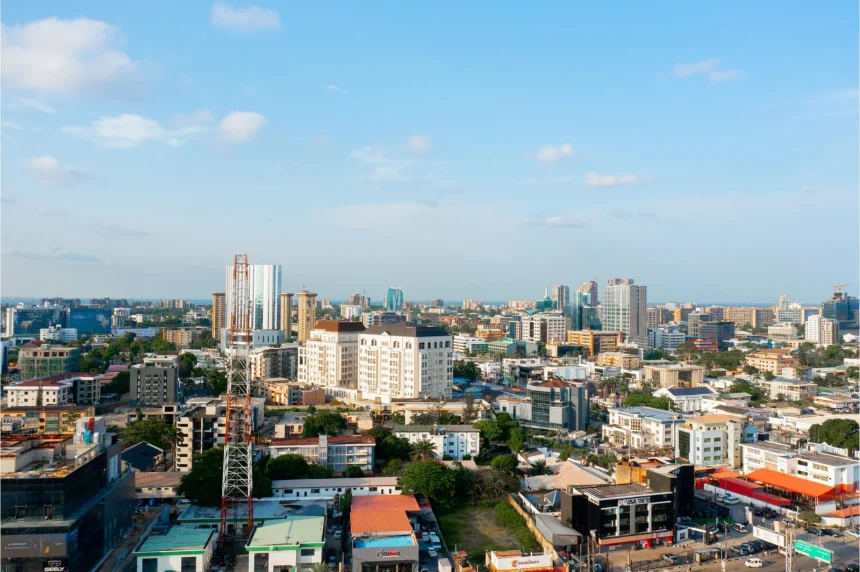For years, the dream of homeownership in Nigeria has been slipping further out of reach. In major cities like Lagos, Abuja, and Port Harcourt, real estate prices have skyrocketed beyond the financial capacity of most residents.
The numbers don’t add up—there are plenty of empty houses, yet millions remain without adequate housing. So, what’s fueling this crisis?
Despite a recent dip in inflation, the cost of property remains stubbornly high. The National Bureau of Statistics reported a decline in Nigeria’s inflation rate to 23.18% in February 2025, down from 24.48% in January. The Central Bank of Nigeria also maintained its Monetary Policy Rate at 27.50%, expecting inflation to ease further. But none of this has translated into lower home prices or cheaper rent. The real estate market seems immune to these economic shifts, and the reasons are as complex as they are frustrating.
Supply and Demand Imbalance
Nigeria faces a massive housing deficit, yet properties especially in highbrow areas are priced far beyond what the average Nigerian can afford. In Lagos, for example, real estate in locations like Banana Island, Ikoyi, Victoria Island, and Lekki is overpriced. This is due to limited land, soaring construction costs, and speculative investment. A similar trend is visible in cities like Accra, Dubai, Nairobi, and Johannesburg.
Rising Costs of Building Materials
Another major issue is the high cost of building materials. Nigeria imports a significant portion of its construction supplies, making home prices vulnerable to currency fluctuations and global market shifts. The rising costs of cement, roofing sheets, and finishing materials have pushed property prices even higher.
Bureaucratic bottlenecks also play a role. Expensive building approvals, high taxes, and lengthy land registration processes add to the overall cost of homeownership.

The Impact of Speculative Investment
Speculative investment is making matters worse. Wealthy investors and developers hoard land and properties, waiting for prices to rise before reselling at exorbitant rates. This artificially inflates market prices, making it even harder for middle-class and low-income buyers to enter the market.
Many of these properties remain vacant for months or even years because they are priced well above what buyers are willing to pay.
Experts Sound the Alarm
Industry experts warn that the current trajectory is unsustainable. A significant number of properties in major cities have remained unsold for over six months simply because their prices are unrealistic.
Stephen Jagun, Chairman of the Professional Practice Committee at ESVARBON, attributes the crisis to land scarcity, foreign investor interest, and lack of infrastructure. He believes a shift in focus is needed. Investors should explore emerging areas where land is still relatively affordable instead of concentrating on already overpriced locations.
The Role of Government and Developers
Jagun urges developers to embrace cost-effective building materials and sustainable construction techniques. Meanwhile, the government must implement land reforms, streamline housing policies, and invest in infrastructure to open up new areas for development.
Olufemi Oyedele, a real estate expert, highlights that overpriced real estate reflects deeper economic issues. He notes that:
-
Over 100 million Nigerians live in inadequate housing.
-
Millions of properties sit vacant because they are too expensive.
-
The Housing Affordability Index shows a one-bedroom flat costs:
-
₦17.5 million in Ikeja
-
₦6.5 million in Abeokuta
-
₦13.5 million in Abuja
-
Developers, he argues, must align their projects with the financial realities of the population.
Stronger Regulations Needed
Oyedele also believes stronger government intervention is necessary. He suggests:
-
No one should start construction without securing financing from a mortgage bank.
-
Laws should regulate abandoned properties.
-
The government must increase social housing supply for low-income earners.
Kunle Awolaja, President of the African Real Estate Society, agrees. He points out that housing prices in Nigeria don’t match income levels, making homeownership difficult. He urges investors to:
-
Consider alternative construction methods.
-
Use financing models like cooperative housing schemes.
The Path Forward
The solution lies in a mix of government action, industry reform, and smarter investment strategies. The government must:
-
Regulate speculative buying.
-
Provide incentives for affordable housing.
-
Invest in infrastructure projects to ease the pressure on prime locations.
-
Expand road networks, water supply, and electricity to make more areas livable.
If these issues remain unaddressed, the housing crisis will only worsen. The gap between supply and affordability will continue to grow, locking millions out of homeownership.
However, if pricing is regulated, policies are enforced, and affordability becomes a priority, Nigeria’s real estate market can finally become accessible to those who need it most.



